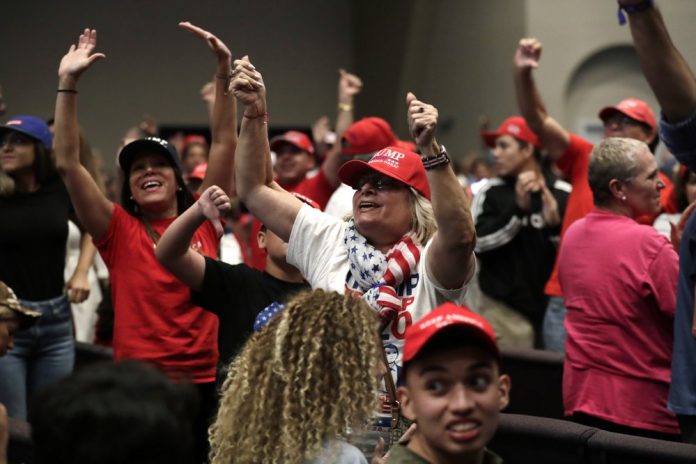Since Donald Trump burst onto the political scene in 2016, there is one group among which he has maintained consistent and unwavering support – white evangelicals. While votes from the faith community have been invaluable to Trump’s political goals, some have also lamented the subsequent effect politics have had on distorting the true meaning of the term “evangelical.” Indeed, in our divisive political times, evangelicals are seen – at least in the mainstream media – as being almost synonymous with President Trump.
“Evangelicalism went from being America’s most controversial religious movement to its most reviled one,” writes the Vardaman Distinguished Professor of History at Baylor University, Thomas S. Kidd, in a feature piece at Desiring God. Trump’s election, Kidd said, has “generated an often-acrimonious debate among scholars about whether embracing “Trumpism” was an aberration for white evangelicals, or instead, a natural outgrowth of what the movement always has represented.”
As ever, the media has happily labeled all evangelicals as Trump supporters. This, along with an inability to define what being an “evangelical” truly means in the context of our current cultural climate, has caused a “crisis with acute political ramifications,” according to Kidd.
The problem, Kidd argues, goes far beyond political jostling. Rather, there is “widespread confusion about the meaning of the term itself,” he writes.
The word “evangelical” actually finds its origins in the Greek word “euangelion,” which simply means “good news.”
So why has the term become so political? Well, it could be something to do with the fact that in the 1980s, the influential Baptist preacher Jerry Falwell, Sr., once told fellow believers that to be evangelical was to “get saved, baptized, and registered to vote.”
The reality, Kidd argues, is that by this particular decade, many Republican evangelical insiders “were conveying to their followers that to be evangelical was to vote, and to vote Republican.”
In addition, choosing not to vote or casting a vote for a Democrat candidate, was viewed as a grave sin by some prominent evangelical leaders.
Soon, conservatives realized that the so-called “evangelicals” were becoming less picky about the particular virtues or religious traits exhibited by the party’s nominee – they would simply cast their vote for the GOP regardless.
Source: Christian Headlines
All Content & Images are provided by the acknowledged source
